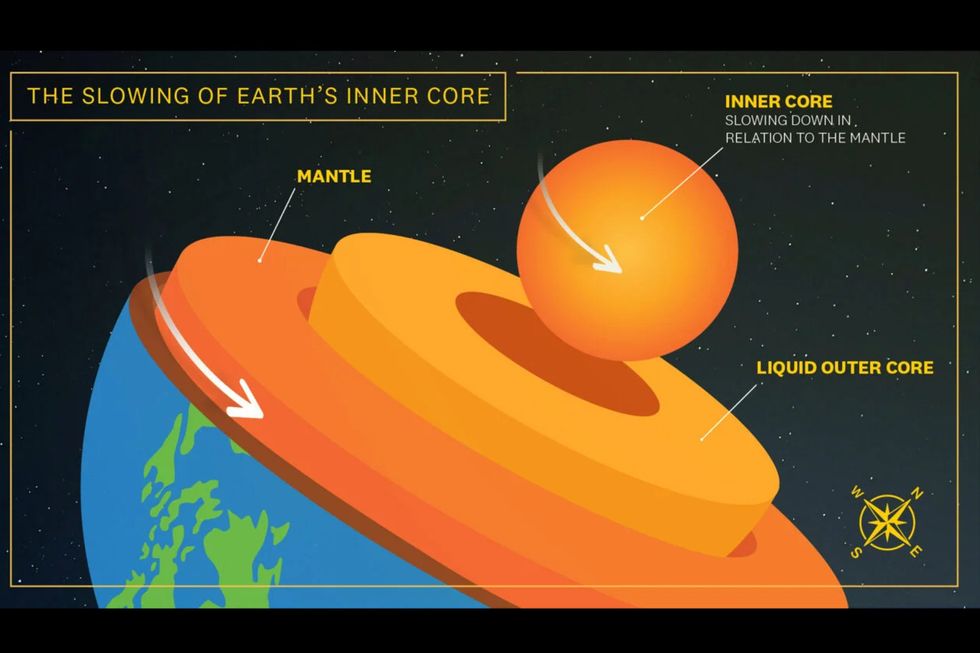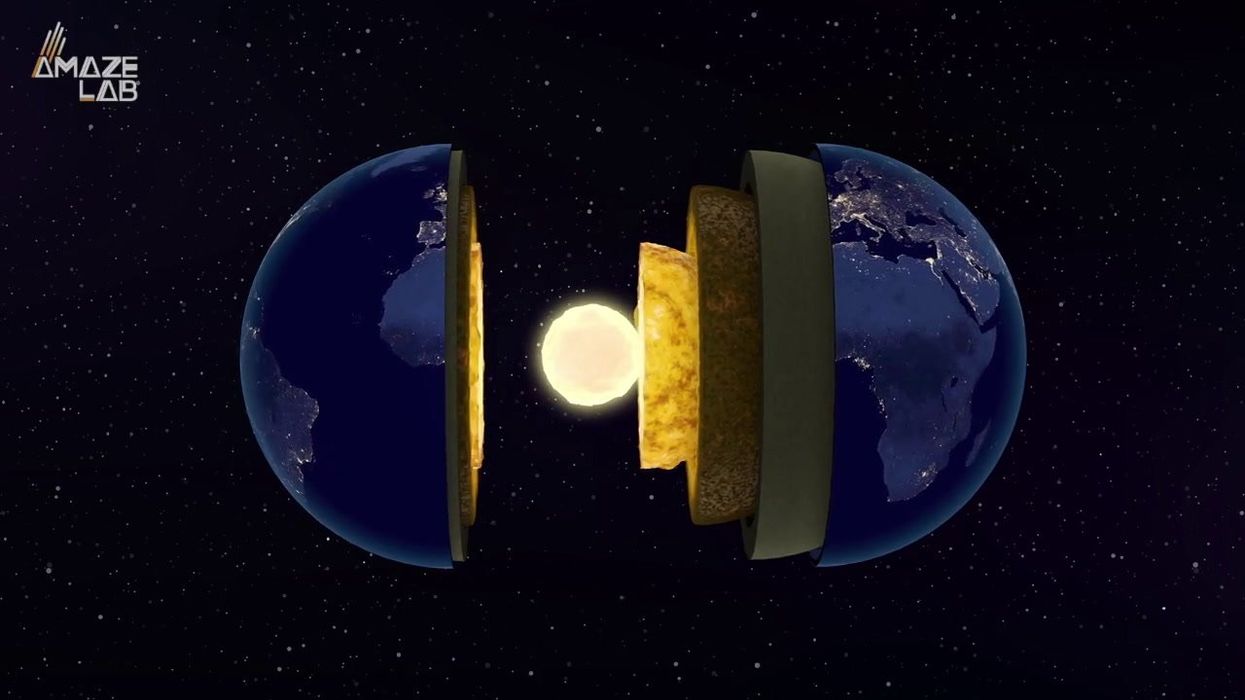Science & Tech
Harriet Brewis
Jun 25, 2024
The Earth’s Inner Core Just Changed Speed Which Could Alter the Length …
ZMG - Amaze Lab / VideoElephant
What lies within the Earth’s innards remains an enigma to even the most learned of experts, although, they’re at least confident there are layers and a dense inner core.
And yet, many of us laymen will be unaware that this core is spinning, and that this could have a strange impact on our daily lives.
The inner core is understood to be a moon-sized chunk of solid iron and nickel that sits more than 4,800 kilometres (3,000 miles) beneath our feet.
It is surrounded by the outer core – a liquid mix of metals, silicon and oxygen – which is then cloaked in the mantle – a 2,900 kilometre (1,802 miles)-thick layer of rock, and finally the crust – the world’s outermost rocky layer.
And although the entire planet is constantly rotating, the inner core is known to turn at a slightly different speed to the mantle and crust, as Live Science notes.
When scientists first started mapping the heart of the Earth, using seismic activity records, some 40 years ago, the inner core was rotating slightly faster than the two outer layers.
But now, a new paper, published in the journal Nature, reveals that the inner core’s movements have been slowing down since 2010, and it is now rotating more slowly than the mantle and crust.
"When I first saw the seismograms that hinted at this change, I was stumped," John Vidale, a seismologist at the University of Southern California, Dornsife, said in a statement.
"But when we found two dozen more observations signaling the same pattern, the result was inescapable."

If the rotation of the inner core continues to decelerate, its gravitational pull could eventually cause the outer layers to also turn more slowly.
The knock-on effect of this would be a lengthening of our days.
However, any such change would amount to thousandths of a second, which would be "very hard to notice," Vidale confirmed reassuringly.
In other words, we won’t need to change our clocks and calendars just yet.
Still, this isn’t the first time scientists have concluded that Earth's inner core is slowing down.
This phenomenon, known as "backtracking," has been debated for about a decade but, so far, it has been very hard to prove, Live Science reports.
In the new study, researchers analysed data from more than 100 repeating earthquakes (tremors that occur repeatedly at the same location) along a tectonic plate boundary in the South Sandwich Islands in the South Atlantic Ocean between 1991 and 2023.
Each quake enabled experts to map the core's position relative to the mantle. And by comparing these measurements, they could see how the inner core's rate of rotation changed over time.
The new study offers the "most convincing" evidence so far that backtracking has, indeed, been taking place, Vidale said.
Yet, the question remains as to why the inner core is slowing down at all.
And whilst this remains unclear, Vidale and his colleagues suggest that it is most likely caused either by "the churning of the liquid iron outer core that surrounds it" or by "gravitational tugs from the dense regions of the overlying rocky mantle”.
It is also unclear how regularly backtracking occurs.
It is possible that the inner core goes through constant periods of rotational acceleration and deceleration without us even noticing.
But these changes, if they do regularly occur, probably happen over decades or longer, meaning we need wider-ranging data sets if we are to learn anything about the core’s long-term patterns.
The inner core remains a source of great intrigue, despite new technologies offering researchers clearer insights into its strange composition and behaviours.
The study’s authors say they will continue to analyse seismic data to uncover more of the secrets buried within our planet’s hearts.
"The dance of the inner core might be even more lively than we know," Vidale said.
Sign up for our free Indy100 weekly newsletter
How to join the indy100's free WhatsApp channel
Have your say in our news democracy. Click the upvote icon at the top of the page to help raise this article through the indy100 rankings
Top 100
The Conversation (0)














